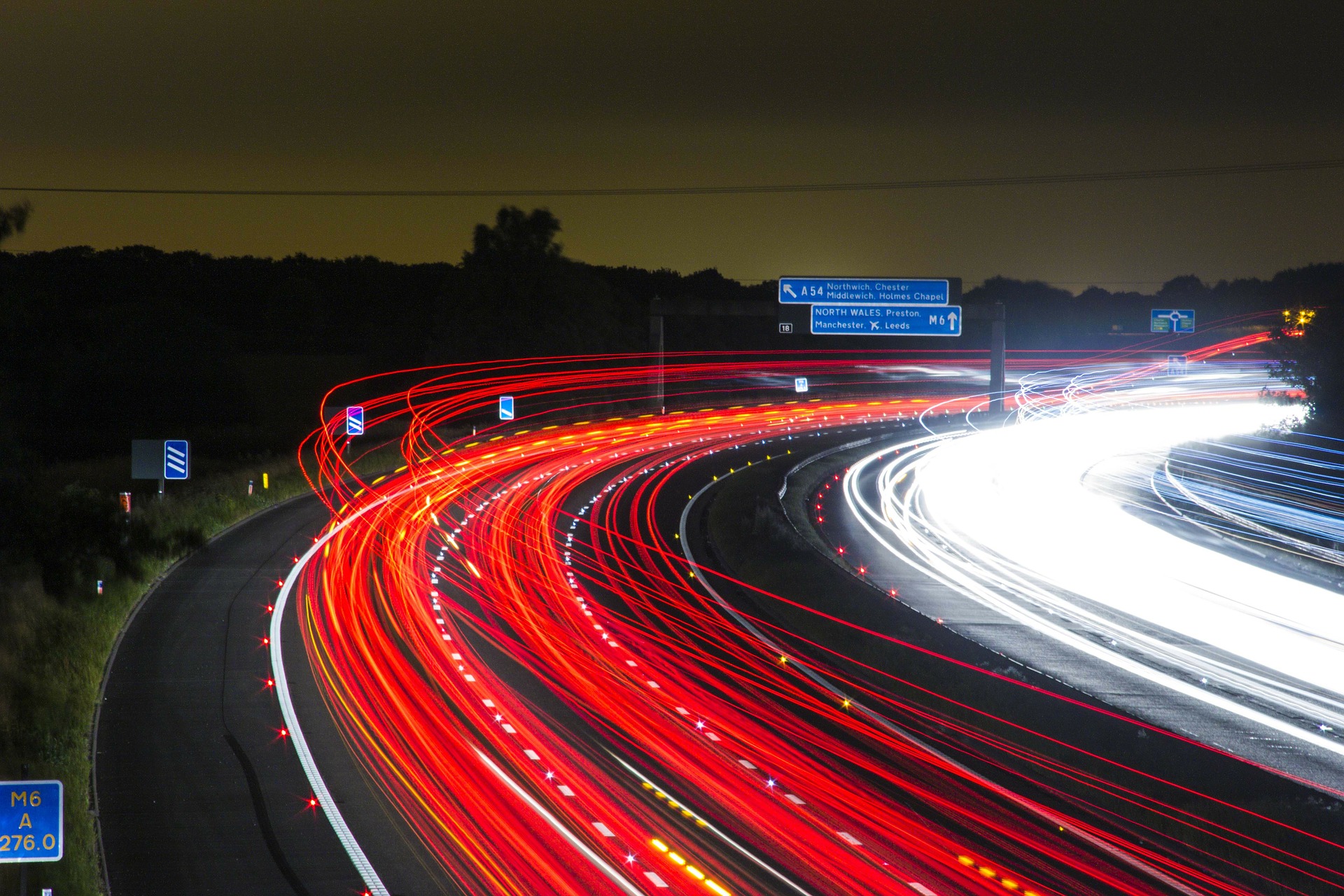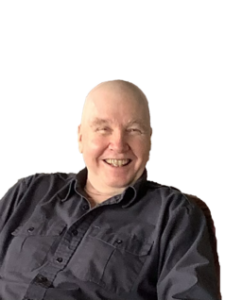The Secret of Life
What’s the secret of life? How should we understand how living well is possible? What’s the difference between those who live well or wisely and those who live poorly or foolishly?
Thinking abstractly may enable us to straighten out our thinking, but it’s important not to get stuck in our thoughts.
What’s the value of wisdom? What’s its practical, concrete, or cash value in everyday life?

Sages, those who are wise, live lives that are fuller of ease, grace, lightness and love than those of us who are not sages.
It’s not that they are somehow more morally valuable than the rest of us. It’s that they’ve realized more of their true nature than the rest of us have.
The problem of using words to distinguish sages from nonsages is similar to that of trying to use words to describe colors to someone totally blind from birth or trying to describe the taste of a pineapple to someone who has never tasted one.
The secret of life is what sages realize that nonsages don’t.
Even though it cannot be thought because it’s beyond conceptualization, it’s natural to try to think of it.
Sages themselves have tried to describe it in many ways. The most useful formulation is something like this: sages balance Being with Becoming, in other words, their lives are better balanced than the lives of nonsages.
The secret of life is realizing Being in Becoming.
In other words, sages are not stuck in Becoming as nonsages are; instead, they have opened to Being. The more Being pervades their experiences in Becoming, the more enlightened they are.
Sages don’t suffer Being-blindness.
Let’s consider an everyday experience that’s likely very familiar to illustrate the difference.

Let’s imagine you as the protagonist in a situation similar to ones you already find familiar. After describing it, we’ll picture it normally and then try to imagine how it might be different when opened to Being.
Suppose that you have a car and, instead of continuing to drive to an important meeting, you’re sitting in a traffic jam. It wasn’t an expected delay such as rush hour traffic; instead, it was caused by an accident. The police are doing their best to clear the jam by alternating letting vehicles in both directions pass. Progress is very slow.
Distinguish physical waiting from psychological waiting.
We sometimes spend time in queues such as waiting to check out at a grocery store or waiting to be served at the Department of Motor Vehicles.
Such physical waiting is not peculiar to modern life. Our hunter-gatherer ancestors spent time waiting, for example, for prey to appear, for fruit to ripen, or for fish to bite. Unless one makes it a problem, it’s not a problem.
On the other hand, psychological waiting is a problem. The more time you spend doing it, the less well you are living.
Pay attention to how common waiting is.
You may wait: for the jury to render its verdict, for the cancer either to go into remission or to kill you, for the school day or work shift to be over, for the bus or train to arrive, for the baby to be born, for the aging parent to die, for your wedding day finally to arrive, for your divorce to become finalized, to be discharged from military service, for the war to be over, for your order to arrive, to graduate, and on and on.
Now you’re waiting for the traffic jam to clear. You may be late for the meeting or even miss it. Either way, you’ll need to learn what happened and you’ll still have to pick up food for supper before going home. You’ll still have to wait for it to cook before eating it. You’ll still have to adjust any plans for this evening to accommodate the delay.
Is all physical waiting psychological waiting? No. A polar bear focused on a seal hole isn’t suffering. A cat waiting near a mouse hole for a mouse to appear isn’t suffering. It’s only we humans who do psychological suffering to ourselves.
We are the world’s champion thinkers and we typically pay a very heavy price for that preeminence. We get stuck thinking and live our lives from conceptual prisons of our own makings.
[See the 7-part sequence elsewhere on this website for more on this and how to free ourselves. It begins at: https://endfearfast.com/being-feeling-and-doing-better-1/.]
Why do these things always happen to me? I’d have avoided this delay if I’d have used the other route. What will they think of me if I’m late or even miss the meeting? Now I won’t be able to add my view to the discussion. Why the hell is it taking so long? And on and on.

It’s critical to notice the separation between reality and how we want reality to be. Why?
Our dissatisfactions always come from separation and, almost always, we’re unintentionally using thought to create dissatisfaction.
In other words, we’re creating our own dissatisfaction. Most of our dissatisfaction (suffering, distress, misery, unease, unhappiness) comes from misusing our ability to think.
We use that ability correctly when it’s useful to solve problems.
We misuse use that ability when we think when it’s useless. Even though it’s useless, we get stuck in thought. It’s impossible, for example, to think our way out of traffic jams.
Sages in the western philosophic tradition teach this.
For example, Epictetus:
“What upsets people is not things themselves but their judgments about the things. . . Do not seek to have events happen as you want them to, but instead want them to happen as they do happen, and your life will go well.” [Nicholas White, tr.]
For example, Plotinus:
“. . . what the soul seeks is The One . . . The chief difficulty is this: awareness of The One comes to us . . . by a presence transcending knowledge . . . knowledge implies discursive reason and discursive reason implies multiplicity . . . The One cannot be multiplicity. . . We must renounce knowing . . . Only in the world beyond does the real object of our love exist . . . Anyone who has had this experience will know what I am talking about . . . the Eternal that is beyond becoming . . .[Bosley & Tweedale, tr.]
For example, Meister Eckhart:
”[T]he kingdom of God . . . has been covered up by time, multiplicity, the soul’s own activity [thinking] . . . all activity must be stilled . . . The very best thing you can do is to remain still for as long as possible.” [Davies, tr.] “God is everywhere . . . lasting and eternal . . . God is neither this nor that.” [Bosley & Tweedale, tr.]
Sages in the eastern philosophic tradition teach this.
For example, the Buddha:
"[W]hen a bodhisattva gives rise to the unequalled mind of awakening, he has to give up all ideas . . . that mind is not caught up in anything . . . Truth can not be cut up into pieces and arranged into a system . . ."
“Conceptual fabrications . . . do give us trouble” [Wallis, tr.] “. . . This Dhamma . . . is . . . unattainable by mere reasoning” [Bodhi, tr.]
For example, Jianzhi Sengcan:
“Cut off all useless thoughts and words . . . just let those fond opinions go. . . live in bondage to your thoughts, and you will be confused, unclear . . .” [Rochester Zen Center, tr.]
For example, Dogen: “Explaining in conventional terms is useless . . . If the mind does not differ, myriad things are one suchness.” [[Thomas Cleary, tr.]
For example, Chinul: “You should get rid of the mind which clings to its delusion and looks forward to enlightenment.” [Buswell, tr.]
That makes sense in theory, but how is it possible when stuck in traffic to live better?

Why?
‘Why?’ is easy to answer: there is no future time at which to wake up!
Life is always lived now. The future qua future never arrives, does it?
Right now, in the present, the future is nothing but a set of thoughts about what might occur. Any logically possible imagined event may or may not occur. It’s impossible to predict.
Why is it impossible to predict?
It’s because, as Hume argued, future events or sequences may or may not turn out to be like past events or sequences. Sometimes they do, but sometimes they don’t – and it’s impossible to tell the difference.
Since the future may or may not resemble the past and we lack any evidence about it, it’s impossible to know what will or will not occur tomorrow. It’s impossible to know with certainty what might be false.
Let it go. It’s just another obstructive thought that separates us from the present moment.
It’s true that, as a practical matter, we have to make guesses about what will happen regularly, which is a cause for deep epistemological humility.
It’s true that, as a practical matter, setting future goals can help us decide what to do right now. The best tactic is to set them and forget them. [See Chapters 2 and 3 in my The 5 Secrets to Making Fast Changes for Good!]
Even though the future doesn’t yet exist, we’re able to imagine it and, so, respond to it with negative or positive emotions. Whether you happen to enjoy one or not, it’d be wise to drop it quickly because it’s really nothing but a distraction from reality that you’ve unintentionally created for yourself by separating your self (ego, egoic mind) from everything else. That’s a way to emotional peacefulness.
Treat plans lightly and always be ready to revise them. Surely you already understand that the world often laughs at our plans. Accept that.
If we’re unable to live well now, we’ll be unable to live well later. There is no living well later. Living well or poorly only ever occurs now.
How?
‘How?’ is also not difficult to answer: instead of focusing exclusively on the contents of consciousness such as thoughts, beliefs, emotions, sensations, and perceptions, instead of personally identifying with them or attaching to them, identify with consciousness itself.
The transitory objects of consciousness are all forms in Becoming, whereas focusing on consciousness itself opens Being.
Emulate sages. What do they do? Instead of personally identifying with the contents of consciousness, they habitually identify with consciousness itself. That’s the way to living well. That’s the way of nonattachment.
[This is the primary subject of that 7-part sequence that begins at
https://endfearfast.com/being-feeling-and-doing-better-1/ ]
There is, though, a caveat here. It’s true that 1 or 2 of every 10 thoughts may be useful. The goal, then, should not be to stop all thoughts from arising. The goal is simply to use any that are useful without attaching to them and to let go of all others that may arise.
We don’t control when thoughts will arise anyway. As Nietzsche points out, a thought comes when it will and not when I will.
There is a difference between simplicity and difficulty. Sometimes what is simple is not easy. In this case, understanding what to do and even doing it occasionally and briefly is simple, but making it habitual is difficult.
Practicing avoiding psychological waiting is very beneficial in terms of living better. All psychological waiting is not only stressful but unnecessary.
Liberation from Becoming is opening to our true nature, which is Being. This requires a radical shift from focusing on the objects of awareness to the awareness itself, from the content of consciousness to its context.
We’ve just seen how, in a concrete example, a sage and a nonsage live differently.
We nonsages are stressed, anxious, and burdened with heavy thoughts. We resist reality and pay for that resistance. We are stuck in Becoming, in temporality. We live attached lives.
Sages have opened to Being, nontemporality. Sages are at ease, relaxed, and living lightly while accepting and enjoying life’s experiences. They live nonattached lives. They’ve successfully mastered the way of nonattachment.
You don’t have to change the world, in this case clear the traffic jam, to begin living well. In fact, trying to change the world without the power to do so merely breeds more dissatisfaction.
You and I don't run the world. The world is run by Being and, so, way beyond our capacity. Certainly, be helpful when possible, but do not assume responsibility for the state of the world. Reality is what it is whether we like it or not.
Instead, change your reaction to the world. Ask yourself, If I had no thoughts, beliefs, or emotions right now about this situation, what would this experience be like?
This works because by disidentifying with your thoughts, beliefs, and emotions, you’ll be able to experience life directly, unfiltered, instead of through a screen of distorted thoughts, beliefs, and emotions. That's the shift from personhood to sagehood, from bondage to freedom.
The truth is, let’s imagine, that you are quite physically comfortable sitting there. You are well-dressed and neither too hot nor too cold. The car’s windows are closed, and you’re not being tortured by noise. Where’s the problem? It’s in your mind. In other words, there is no problem if you stop resisting reality.
What if reality isn't as you prefer it? If it's possible for you to change a small part of it and worth doing so, do so. If not, just accept it completely.
Stop identifying with your sensations and perceptions. Instead of incessantly judging or evaluating them, just observe them. Let them be just as they are rather than judging them as “good” or “bad”. Assume they are just as they are supposed to be. Inner nonresistance is the way to wisdom.
Let go of attachment to the objects of consciousness and focus 180 degrees in the opposite direction, namely, on the supposed "I" thought itself. If, for example, there's a tree , detach from the tree, which is the object, and focus instead on the subject who is supposedely seeing the tree, the "I" thought. Who or what is it?
Bhagavan Sri Ramana Maharshi and others assure us that doing that well dissolves not only the thought of the tree but that question itself and that awareness without thought or ego is awareness of Being.
Although not necessary, stilling the body can be helpful in stilling the mind in that way. Use this link to learn an effective way from me how without spending a penny one effective way to begin:
https://event.webinarjam.com/register/2/452gmug
That’s what works to live better. It’s the shift from paying sole attention to the contents of consciousness to identifying with the consciousness itself that’s observing those contents nonjudgmentally.
That presence is pure consciousness, which is never uneasy, stressed, or painful. It’s simply direct awareness of what-is.
That’s what the wise learn to do habitually. They shift from being stuck with their personal limitations to being unstuck and living freely. The witnessing presence isn’t personal; it transcends personhood. It’s life without bondage to thoughts, beliefs, and emotions. It’s life without time.
If you develop that skill, you’ll still be able to slip back and forth between temporality and nontemporality. You won’t be stuck being a person and yet you’ll be able to return to it for practical purposes whenever you want. Realizing that undermines all fear of letting go of personhood. It’s an opening up rather than a closing down.
It’s not losing a self; it’s opening to your true nature, which is Self.
The gain is immensely valuable. It’s shifting from a hellish life to a heavenly one, from a fearful one to a loving one. That's our most important task. All other values are secondary or even peripheral.
Sages report becoming free of personal limitations. They are no longer being fettered by automatic attachments to obstructing thoughts or prolonged unwanted emotions. It’s life full of joy, love, and peace beyond conceptual understanding. It’s living wisely or well.
There’s no good reason not to find out for yourself and automatically show others the real meaning of wisdom.
I wish you well.
